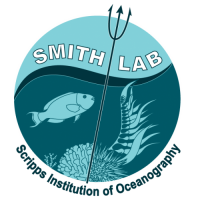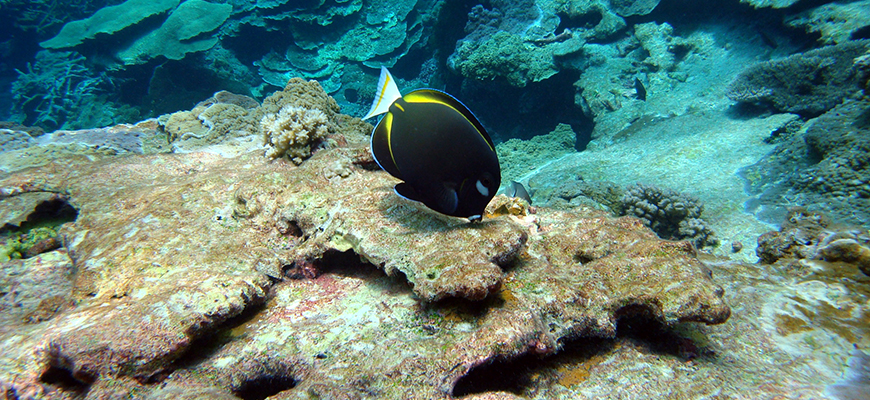Dr. Maggie Johnson, a recent Smith Lab PhD grad, recently published a study in the journal Coral Reefs revealing how epilithic and endolithic algae (that is, algae that grows on top of and beneath the surface of “rocks”, respectively) respond to increasing ocean temperature and acidification (lower pH).
Samples were collected from turf-covered substrate in Moorea, and were exposed for 3 weeks to different combinations of temperature and pH levels meant to mimic projections of future as well as present ocean temperatures and pH values.
Findings of this study suggest that algal turfs may respond positively to both warmer temperatures and lower pH (caused by an abundance of carbon dioxide in the water, which fuels photosynthesis). What’s interesting about these findings is that they also found an interactive effect between these two factors, meaning that the observed effects were even more apparent when warm temperatures and increased carbon dioxide were combined.
So, what does this mean for reefs of the future? While turf algae may respond positively to these conditions, other organisms, such as the corals that build the reefs, may have a negative response. This could mean a shift in the future from reefs that are dominated by calcifying reef organisms to those dominated by algal turfs and other fleshy organisms.
This study highlights the importance of incorporating multiple stressors into global change experiments to gain a complete understanding of how they will affect coral reefs in the future!
Click here to see Maggie’s photo featured as SIO’s “photo of the week”!
Johnson, M. D., S. Comeau, C. A. Lants, & J. E. Smith (2017) Complex and interactive effects of ocean acidification and temperature on epilithic and endolithic coral-reef turf algal assemblages. Coral Reefs. https://doi.org/10.1007/s00338-017-1597-2 [pdf]


